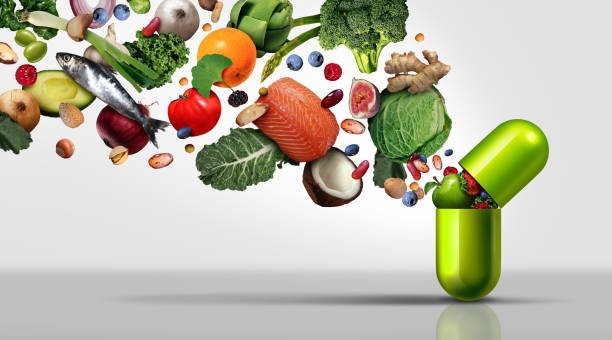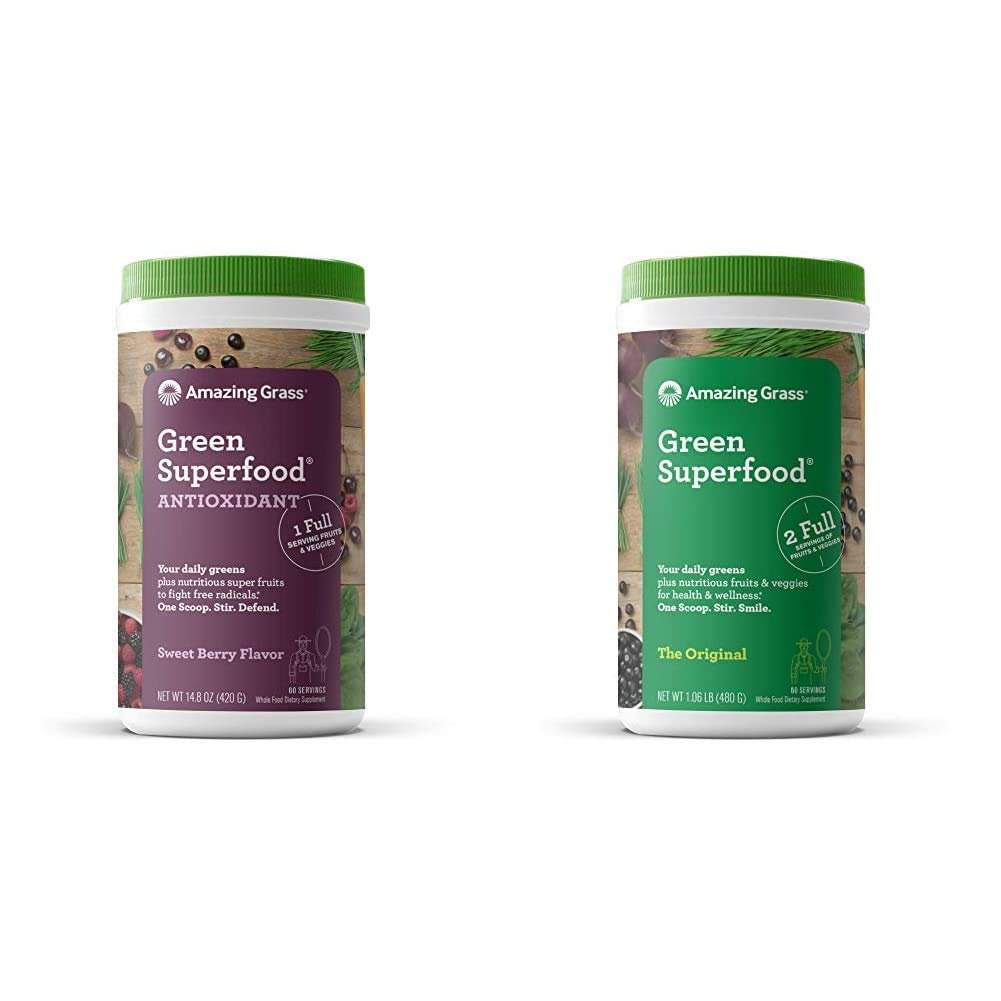Are you constantly feeling tired and lacking energy? If so, it’s time to explore the world of natural supplements that can help give you the boost you need. Whether you’re struggling with fatigue, seeking more stamina for your workouts, or just looking to increase your overall energy levels, these natural supplements can be a game-changer. Discover the top recommendations for enhancing your vitality and feeling rejuvenated throughout the day.

Vitamins
B Vitamins
B vitamins are essential for maintaining energy levels in the body. They play a crucial role in converting food into energy and promoting efficient metabolism. B vitamins, including B1 (thiamine), B2 (riboflavin), B3 (niacin), B5 (pantothenic acid), B6 (pyridoxine), B7 (biotin), B9 (folate), and B12 (cobalamin), all contribute to the production of ATP, the body’s primary energy currency. These vitamins are water-soluble and need to be replenished regularly since they are not stored in the body. To ensure adequate intake, include a variety of B vitamin-rich foods such as whole grains, legumes, leafy greens, eggs, and lean meats in your diet.
Vitamin D
While primarily known for its role in bone health, vitamin D also plays a role in maintaining energy levels. This fat-soluble vitamin regulates the absorption of calcium and phosphorus, crucial minerals for energy metabolism. Low levels of vitamin D have been associated with fatigue and decreased muscle strength. Natural sources of vitamin D include sunlight exposure, fatty fish like salmon and mackerel, egg yolks, and fortified dairy products. If you struggle to get enough sunlight or dietary sources, vitamin D supplements may be beneficial, especially during the winter months or for individuals with limited sun exposure.
Vitamin C
Vitamin C is well-known for its immune-boosting properties, but it also plays a vital role in energy production. This antioxidant vitamin aids in the conversion of glucose into ATP, helping to fuel your body’s activities. Additionally, vitamin C helps reduce oxidative stress, which can contribute to fatigue. Citrus fruits like oranges and grapefruits, strawberries, bell peppers, and leafy greens are excellent sources of vitamin C. Including these foods in your diet can help ensure optimal energy levels and overall wellbeing.
Herbs
Ashwagandha
Ashwagandha is an adaptogenic herb that has been used for centuries in Ayurvedic medicine to enhance energy levels and reduce stress. It helps the body adapt to physical and mental stressors, promoting overall vitality. Ashwagandha has been shown to reduce cortisol levels, a stress hormone that can deplete energy reserves. This herb also has antioxidant properties, protecting the body from oxidative damage that can contribute to fatigue. You can find ashwagandha in supplement form or as a powder that can be added to smoothies or warm beverages.
Ginseng
Ginseng, particularly Asian ginseng (Panax ginseng) and American ginseng (Panax quinquefolius), is known for its energizing and revitalizing properties. It has been used in traditional Chinese medicine to enhance physical and mental stamina. Ginseng is believed to improve energy levels by reducing oxidative stress, supporting the immune system, and promoting healthy blood circulation. It is available in supplement form, as a tea, or as an ingredient in energy drinks.
Rhodiola Rosea
Rhodiola Rosea is an adaptogenic herb that has been traditionally used in Siberian and Scandinavian cultures to combat fatigue and increase energy levels. It has been shown to enhance physical and mental performance, reduce fatigue, and improve overall feelings of well-being. Rhodiola Rosea works by regulating the stress response in the body, reducing the impact of stress on energy levels. It also helps improve oxygen utilization, supporting optimal energy production. Rhodiola Rosea can be found in supplement form and is often recommended for individuals looking to boost their energy naturally.
Minerals
Iron
Iron is an essential mineral for energy production as it aids in the transport of oxygen throughout the body. It plays a vital role in the production of hemoglobin, a protein in red blood cells that carries oxygen from the lungs to tissues and organs. Low iron levels can result in decreased oxygen delivery, leading to fatigue and decreased energy levels. Include iron-rich foods in your diet such as lean red meats, poultry, seafood, legumes, and dark leafy greens. It is worth noting that iron absorption is enhanced in the presence of vitamin C, so incorporating vitamin C-rich foods alongside iron sources can help optimize iron absorption.
Magnesium
Magnesium is involved in more than 300 biochemical reactions in the body and is crucial for energy production. It plays a key role in the conversion of food into ATP, the body’s energy currency. Magnesium also helps regulate neurotransmitters involved in energy metabolism and muscle function. Low magnesium levels have been linked to fatigue and decreased exercise performance. You can find magnesium in foods like nuts, seeds, whole grains, legumes, and leafy green vegetables. If your magnesium levels are consistently low, supplements may be beneficial, but consult with a healthcare professional beforehand.
Zinc
Zinc is another mineral that plays a role in energy production. It is involved in the metabolism of carbohydrates, proteins, and fats, and is essential for the synthesis of DNA and RNA, which are important for cell division and growth. Low zinc levels have been associated with fatigue and decreased immune function. Sources of zinc include oysters, beef, poultry, nuts, and seeds. If you have difficulty meeting your recommended zinc intake through diet alone, supplements can be considered under medical guidance.
Adaptogens
Maca
Maca is a root vegetable that belongs to the cruciferous family and is native to the Andes region of Peru. It has been used for centuries as an adaptogen to boost energy levels and enhance stamina. Maca is rich in vitamins, minerals, and antioxidants that support overall energy production and vitality. It has been shown to improve physical performance, reduce fatigue, and increase feelings of well-being. Maca can be consumed in powder form, added to smoothies or baked goods, or taken as a supplement.
Holy Basil
Holy Basil, also known as Tulsi, is a sacred herb in Ayurveda. It has been traditionally used to promote energy and vitality. Holy Basil is considered an adaptogen, meaning it helps the body adapt to stress and restores balance. It is believed to enhance energy levels, reduce fatigue, and support overall wellbeing. Holy Basil can be consumed as a tea, supplement, or infused in dishes for its aromatic and therapeutic properties.
Siberian Ginseng
Siberian Ginseng, also known as Eleuthero, is an adaptogenic herb native to northeastern Asia. It has been used in traditional Chinese medicine and Russian folk medicine for centuries to improve vitality and combat fatigue. Siberian Ginseng is believed to enhance stamina, boost immune function, and improve overall energy levels. This herb can be found in supplement form or as an ingredient in herbal teas and tonics.
By incorporating adaptogens into your daily routine, you can help promote balanced energy levels and support overall vitality.
Amino Acids
L-Carnitine
L-Carnitine is an amino acid that plays a crucial role in cellular energy production. It transports fatty acids into the mitochondria, where they are converted into ATP, the body’s primary energy source. L-Carnitine has been shown to improve exercise performance, reduce fatigue, and enhance recovery. Natural food sources of L-Carnitine include red meat, fish, chicken, and dairy products. However, if you follow a vegetarian or vegan diet or have specific dietary restrictions, L-Carnitine supplements may be considered under medical guidance.
L-Theanine
L-Theanine is an amino acid primarily found in green tea. It has been shown to promote relaxation without causing drowsiness and can help reduce stress and anxiety. By enhancing alpha brain wave activity, L-Theanine contributes to increased mental alertness and focus. This amino acid can be found in supplement form or consumed through drinking green tea. Incorporating L-Theanine into your routine may help support overall energy levels, mental clarity, and a calm state of mind.
Creatine
Creatine is a compound synthesized from amino acids and stored in the muscles as creatine phosphate. It plays a vital role in providing energy for intense, short-duration activities, such as weightlifting or sprinting. By increasing the availability of phosphocreatine, creatine supplements can enhance ATP production, leading to increased energy levels and improved exercise performance. Creatine is commonly found in meat and fish. However, for those following a vegetarian or vegan diet, or individuals who require higher creatine levels for specific activities, supplements can be beneficial.
Coenzyme Q10
Benefits of Coenzyme Q10
Coenzyme Q10, also known as CoQ10, is a naturally occurring compound found in every cell of the body. It is a vital component of the electron transport chain, which is responsible for producing ATP, the body’s primary energy currency. CoQ10 also acts as an antioxidant, protecting cells from oxidative damage. Studies have shown that CoQ10 supplementation can enhance energy levels, reduce fatigue, and improve exercise performance. It may also have a positive impact on heart health, brain function, and overall well-being.
Food sources of Coenzyme Q10
While the body can produce CoQ10 on its own, its levels may decline with age or certain medical conditions. To ensure adequate intake, include food sources rich in CoQ10 in your diet. These include organ meats like liver and heart, oily fish like salmon and sardines, soybean and canola oils, nuts, and seeds. However, it’s worth noting that the amount of CoQ10 obtained from dietary sources may not be enough to experience significant energy-boosting benefits. In such cases, supplements can help bridge the gap and provide additional support.
Omega-3 Fatty Acids
Benefits of Omega-3 Fatty Acids
Omega-3 fatty acids, specifically eicosapentaenoic acid (EPA) and docosahexaenoic acid (DHA), are essential fats that play a crucial role in maintaining overall health, including energy levels. These fatty acids contribute to proper brain function, reduce inflammation, enhance cardiovascular health, and support optimal energy metabolism at the cellular level. Studies have shown that omega-3 supplementation can improve energy levels, reduce fatigue, and enhance exercise performance.
Sources of Omega-3 Fatty Acids
The best natural sources of omega-3 fatty acids are fatty fish like salmon, mackerel, and sardines. Plant-based sources include flaxseeds, chia seeds, hemp seeds, and walnuts, although they provide a different form of omega-3 called alpha-linolenic acid (ALA), which needs to be converted to EPA and DHA within the body. Some individuals may have difficulty converting ALA, making marine-based omega-3 supplements a convenient option to ensure optimal intake.
Probiotics
Gut health and energy levels
The health of your gut plays a significant role in overall energy levels. The gut microbiome, the collection of microorganisms residing in your digestive tract, influences various bodily functions, including energy production. A balanced and diverse gut microbiome supports efficient digestion and absorption of nutrients, ensuring optimal energy production. Imbalances in the microbiome can lead to digestive issues, inflammation, and decreased energy levels. Probiotics, beneficial bacteria strains, can help restore microbial balance and support gut health, ultimately enhancing overall energy levels.
Best probiotic strains for energy
When selecting probiotics for energy support, look for strains such as Lactobacillus acidophilus, Bifidobacterium bifidum, and Lactobacillus rhamnosus, as they have been specifically associated with improved energy production and reduced fatigue. These strains can be found in various probiotic supplements, yogurts, fermented foods like sauerkraut and kimchi, and kombucha. Incorporating these probiotic-rich foods into your diet, along with a healthy lifestyle, can promote optimal gut health and boost energy levels.
Green Tea Extract
Caffeine and energy
Green tea extract is derived from the leaves of the Camellia sinensis plant and has been consumed for centuries for its health benefits. It contains caffeine, a natural stimulant that can contribute to increased energy levels. However, the caffeine content in green tea extract is generally lower than that of coffee or energy drinks, providing a more gentle and sustained energy boost. Green tea extract also contains L-Theanine, an amino acid that promotes relaxation without causing drowsiness, resulting in a balanced and focused energy.
Benefits of green tea extract
In addition to its caffeine content, green tea extract is rich in polyphenols, particularly Epigallocatechin gallate (EGCG), a powerful antioxidant. These compounds have been shown to aid in weight management, enhance exercise performance, support cardiovascular health, and provide an overall energy boost. Green tea extract is commonly available in supplement form, providing a convenient way to enjoy the benefits of green tea without the need for brewing.
Mental Health Supplements
L-Theanine
L-Theanine, as mentioned before, is an amino acid found in green tea. Besides promoting relaxation and focus, it has also been studied for its potential benefits in supporting mental health. L-Theanine has been shown to reduce anxiety, improve sleep quality, and enhance overall feelings of calmness. By reducing stress and promoting a positive mental state, L-Theanine indirectly supports optimal energy levels.
Rhodiola Rosea
Rhodiola Rosea, an adaptogenic herb mentioned earlier, not only benefits physical energy but can also support mental energy and resilience. It has been shown to reduce mental fatigue, improve cognitive function, and enhance overall mental well-being. Rhodiola Rosea helps balance stress hormones and supports optimal brain function, making it beneficial for those experiencing mental fatigue or looking to enhance mental performance.
Ginkgo Biloba
Ginkgo Biloba, an herbal supplement derived from the leaves of the Ginkgo Biloba tree, has been used for centuries to support brain health and cognitive function. It is believed to improve memory, concentration, and mental clarity. By enhancing blood circulation and oxygen supply to the brain, Ginkgo Biloba can provide a natural mental energy boost. This supplement is available in various forms, including extracts and capsules, and is often used by individuals seeking cognitive enhancement and mental energy support.

Incorporating these natural supplements into your daily routine can help boost your energy levels, enhance mental and physical stamina, and support overall well-being. However, it’s important to remember that supplements should not replace a healthy lifestyle, balanced diet, and regular exercise. If you have any underlying health conditions or are taking medications, it’s always advisable to consult with a healthcare professional before incorporating new supplements into your routine. With the right approach and afocus on holistic well-being, you can tap into the power of natural supplements to elevate your energy levels and live your best life.





